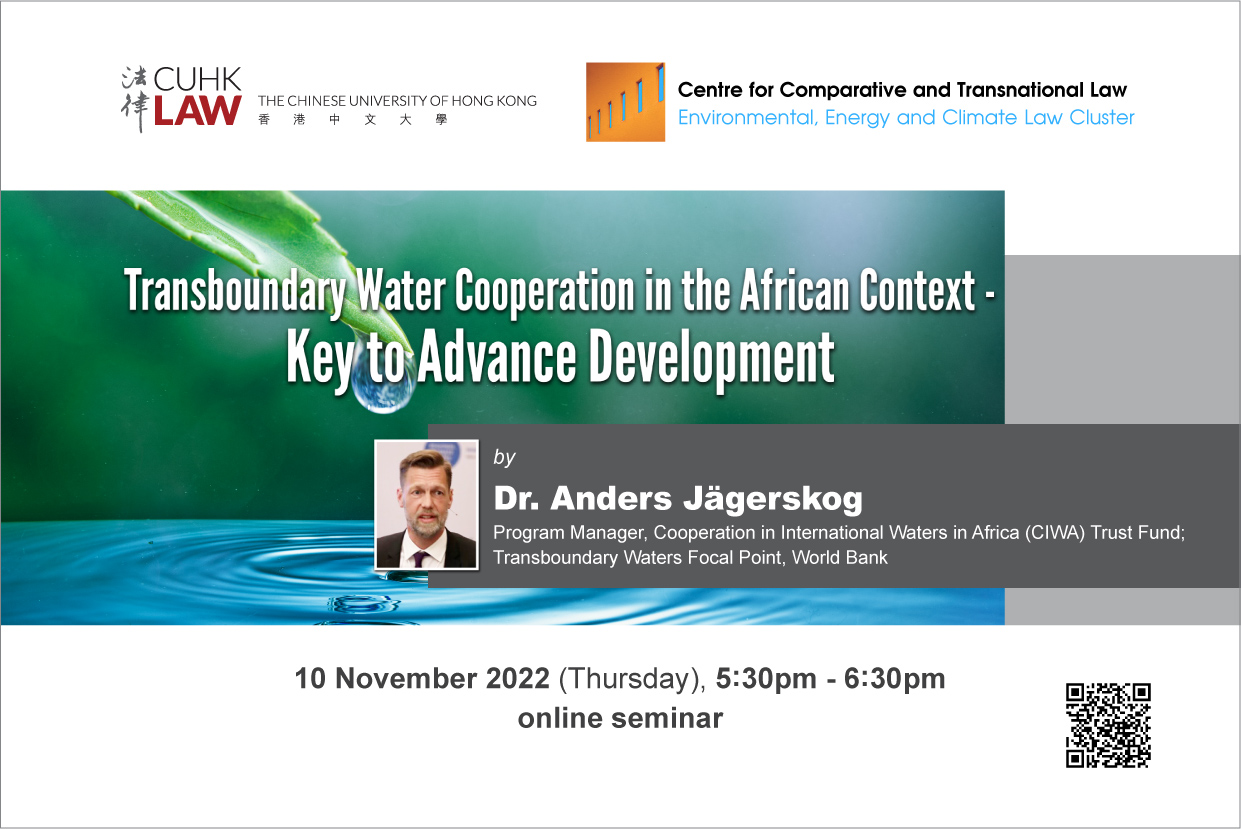活动
CUHK LAW CCTL Environmental, Energy and Climate Law Cluster Seminar – ‘Transboundary Water Cooperation in the African Context – Key to Advance Development’ by Dr. Anders Jägerskog (Online)
2022年11月10日
5:30 pm – 6:30 pm
Online (Zoom)
Anders Jägerskog Ph.D is Program Manager of the Cooperation on International Waters in Africa (CIWA) Trust Fund (ciwaprogram.org). He is also the focal point at the World Bank for Transboundary Waters. His work focuses primarily on the African continent and on the Middle East and North Africa region but is also global. Previously he was Counsellor for regional water resources in the MENA region at the Swedish Embassy in Amman, Jordan; Director, Knowledge Services, at the Stockholm International Water Institute (SIWI) where he headed the Transboundary Water Management Unit and was work area leader for applied research. He managed the UNDP Shared Waters Partnership which facilitates and promotes dialogue and cooperation on transboundary water resources. He is Associate Professor (Docent) at Peace and Development Research, School of Global Studies, University of Gothenburg where his work focuses on global water issues. He worked for Swedish Ministry for Foreign Affairs; at the Embassy of Sweden, Nairobi and at Stockholm International Peace Research Institute (SIPRI). In 2003 he finished his PhD on the water negotiations in the Jordan River Basin at the Department of Water and Environmental Studies at the Linköping University, Sweden. He has published over 100 scientific articles, book chapters, debate articles and reports on global water issues.
With 90 percent of the water in Africa falling within 63 river basin catchments crossed by multiple borders, water resources management and development must be a cooperative endeavor. The Cooperation on International Waters in Africa (CIWA) Trust Fund works to strengthen institutions, improve knowledge, develop investment opportunities, and train governments to cooperate across shared waters. The presentation will draw upon CIWA engagement and experiences in addressing transboundary water management and also include global examples. In order to address the current climate and development challenges action on transboundary water is imperative. Without concrete climate action and climate-sensitive development, as many as 86 million people in Sub-Saharan Africa could be forced to relocate by 2050 from water scarcity, sea level rise and storm surges, and declines in crop and ecosystem productivity. Tapping into Africa’s water resources can significantly strengthen the region’s water security, improve livelihoods, and spur economic growth. Improved water resources management can increase food security, reduce vulnerability to climate change, improve human health and sanitation, and increase energy generation and industrial expansion.
Language: English




